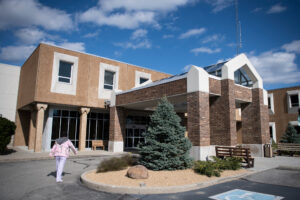How Rural Hospitals and Practices Can Attract Additional Qualified Physicians
 A national study of the emergency physician workforce in 2020 found that, of the 48,835 clinically active emergency physicians in the United States, 92% (44,908) practice in urban areas and just 8% (3,927) practice in rural communities. The study, which was published in the Annals of Emergency Medicine, also found that most emergency physicians in small rural areas completed their medical training more than 20 years ago. When you consider that the median age for emergency physicians in large rural communities is 58 years old, and 62 years old in smaller rural communities—near the U.S. retirement age—you can understand why rural hospitals and practices would want to attract qualified physicians.
A national study of the emergency physician workforce in 2020 found that, of the 48,835 clinically active emergency physicians in the United States, 92% (44,908) practice in urban areas and just 8% (3,927) practice in rural communities. The study, which was published in the Annals of Emergency Medicine, also found that most emergency physicians in small rural areas completed their medical training more than 20 years ago. When you consider that the median age for emergency physicians in large rural communities is 58 years old, and 62 years old in smaller rural communities—near the U.S. retirement age—you can understand why rural hospitals and practices would want to attract qualified physicians.
Given the ongoing demand for physicians in all U.S. emergency departments, how can rural areas attract and retain top talent? A focus on hiring qualified primary care physicians may be the answer. Currently, about half of the nation’s emergency department workforce has completed a residency in a primary care field, and many of these physicians have substantial experience in emergency medicine.
A Focus on Primary Care Physicians
While rural and urban patients share many of the same lifestyle-related health problems, like obesity and drug abuse, some issues like snake bites or inadequate access to primary medical care are unique to the rural setting. Primary care physicians are ideally suited for the ER—especially in rural areas. Primary care doctors usually have a diverse skill set and a strong clinical background, and the high volume of patients they typically see as part of their residency prepare them to rapidly diagnose and treat patients of all ages and conditions. In fact, thousands of primary care physicians have become leaders in emergency departments across the country.
To attract qualified physicians, administrators of rural hospitals and practices can promote the benefits of working in rural America, such as:
- The small-town atmosphere that offers the chance for a personal connection between physicians and patients
- A low patient population that gives physicians more time to familiarize themselves with patients’ medical needs
- Affordable housing
- The relatively low crime rate
- Outdoor recreational opportunities like camping, hiking, and bicycling
As a multi-specialty certification body that believes advanced training or certification is needed to ensure rural areas have access to well-trained physicians, the American Board of Physician Specialties® (ABPS) offers physician board certification in a variety of specialties, from traditional fields like family medicine to emerging specialties like integrative medicine. Furthermore, career emergency physicians with substantial experience, and either an appropriate residency or completion of an approved post-graduate fellowship, may be eligible to apply with our Member Board, the Board of Certification in Emergency Medicine® (BCEM).
The ABPS Is a Nationally Recognized Certification Board
Recognized in the U.S. Department of Labor’s Occupational Handbook, the ABPS has also earned recognition from other federal organizations, including the Veterans’ Health Administration and the United States Armed Forces under the GI Bill. Our goal is to provide practicing physicians with an opportunity to thoroughly demonstrate their base of knowledge, professional skill, and commitment to ongoing education and training through world-class certification and recertification.
Eligibility Requirements of the ABPS
While each of the 12 Member Boards of the ABPS has its own eligibility requirements, there are several general requirements that they all share, including:
- Completion of an accredited residency
- Attestation of an unrestricted medical license
- Completion of a non-remedial medical ethics course
- Completion of between 15 and 50 hours of continuing medical education for recertification
ABPS Certification Exams
Candidates for certification by an ABPS Member Board must pass a computer-based, written examination to earn board certification. Some Member Boards also require an oral exam. The written examination for each ABPS Member Board is multiple-choice format and developed by certified physicians as subject matter experts. Written exams take place under standardized conditions across an expansive network of secure testing sites throughout the United States and Canada in May, August, or October, depending on the specialty. Oral exams are offered once a year virtually. For specialties requiring oral examinations, candidates must first successfully pass a written exam.
For more information about the ABPS, contact us today. We would be happy to give you details about our eligibility requirements and the benefits of ABPS certification.






